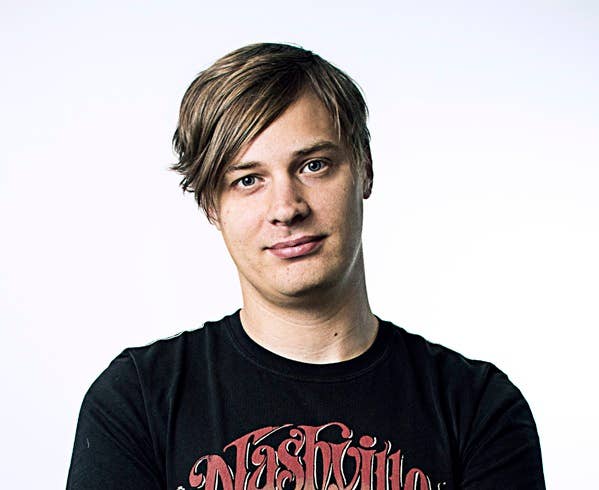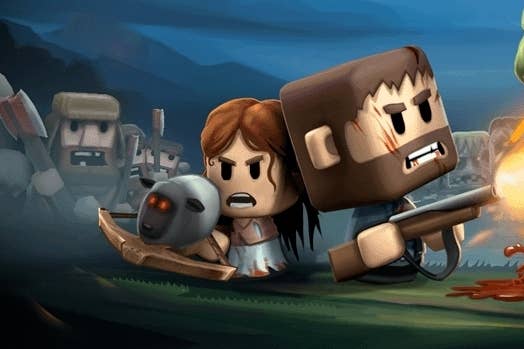Indie survival in an industry where "flux is the new status quo"
Good managers and good visionaries don't have to be mutually exclusive among game developers, says Mountain Sheep COO Teppo Soininen
Our first game almost killed the company.
Mountain Sheep was born in the summer of 2006, the happy offspring of Kimmo Vihola, Timo Vihola, and Jouni Mannonen. The intoxication of independence wore off quickly. We were telecommuting with developers across the world, working from home, which seemed great at the time - except no one could see the whole project as a result. Costs ran out of control. The company finally debuted with Super Hind, a 3D helicopter game for the PlayStation Portable. Three years in development. Roughly 30,000 units sold. It nearly bankrupted Mountain Sheep. We never really did figure out how to make a 3D flight mechanic work with one analog stick.
Now, many years later, we believe that the practical limits you put on vision - the invaluable capacity to self-edit - is a highly underappreciated factor in success. There's a perception that publishers are a necessary ingredient in game development because developers can't be trusted to run their own projects on-time or on-budget; that good managers and good visionaries are mutually exclusive. That's a generalization, one which serves our understanding of this evolving industry poorly. Because in this present era of gaming, where flux is the new status quo, there's incredible opportunity for studios that can manage their vision - aggressive enough to identify a market need and agile enough to turnaround a product that meets it before anyone else. Reducing scope is sometimes the answer, even if you have the resources to "go big".

Let me explain how our studio came around to this realization. After floundering with Super Hind, we didn't have any other option than to make an inexpensive game for iOS. There was no money. We made Minigore in three months - to save time and money the main character's legs and nose were eliminated (less polygons!). It generated over one million US dollars, and we were able to release Minigore HD for iPad as well, which was one of the first genuine game hits for the platform. It would have been easy for us to begin scoping out a big project again, and get overly ambitious. But instead we took a (gasp!) work for hire project, developing Death Rally with Remedy, and began outlining two even smaller ideas: Ice Rage and Bike Baron.
We then established a couple years of sustainable work flow. Death Rally did well for Remedy. We developed Bike Baron alongside it, based on the simple premise that iOS needed a good stunt driving game. It came out in 2011 and has been our best-selling game. We also put out Ice Rage that year. The original, 2D version of it took two days to create. It was basically a port of the Commodore 64 hockey classic Hat Trick - we gave it another month to make it 3D and add some polish. This combination of small projects and consistent work was the right formula for Mountain Sheep. It wasn't until 2012 that Minigore 2 actually released - roughly three years later - but our ability to manage the process kept it from sharing the fate of our first failure. We had the skill set and team to deliver on a relatively big game developed natively for the latest iPad.
"Scoping a project is crucial especially with small teams. If you don't do this it's likely that you will end up with a decent game that no one will care about"
Scoping a project is crucial especially with small teams. If you don't do this it's likely that you will end up with a decent game that no one will care about. Sticking to the defined scope of a project is challenging when prototyping different things in very late stages. We try out different things during production; if they work we use them, if they don't we try to make them work, if we can't make them work we throw them away. But if you don't know what your project is going to be like how can you limit its scope? Our approach here is to try and find the features that make the game significantly better and throw away features that add little or no value. One typical way "feature creep" happens is when merely "OK" features are justified by saying "why not?" If the feature is not super-awesome and exceptionally well-tuned you should think twice. I personally fancy Journey as a good example of this philosophy. Thatgamecompany made a game that has basically no extra features, just a solid core thing that they stuck to. Journey is about the audio-visual experience, that's it.
Any indie developer that has seen some success will get a ton of requests: "Can you port your game for this new device?", "We love your game and we'd love to publish it for you in our region", "We have a organization that does this thing, could you make us a branded version for us?", "Let us help you promote your game for just this small amount, you'll see amazing results", etc. It's always important to check what people are offering you but be smart about what you throw yourself at. Respect everyone but keep your cool and take your time to figure out if you really want to grab this offer. The most important thing to remember is to value your own time. Money helps in a lot of cases but saying no to deals that are good but not great is hard.
"We learned how to direct ourselves, to create production structures which would make success more likely by holding us firmly to what we could realistically deliver"
Our post-Super Hind longevity wasn't planned perfectly, but it's no accident. From that nearly fatal failure we learned how much a project can take away from you if you give it everything you have - if there is any lesson an aspiring indie developer can take from Mountain Sheep's story it is this. We learned how to direct ourselves, to create production structures which would make success more likely by holding us firmly to what we could realistically deliver. We are very wary of devoting so much of ourselves to a single title again.
Perhaps we stumbled in the right direction, and none of this is to say 'make the kind of games we make.' Do what drives your passion and plays to your strengths. Hell, we made Ouya ports of Ice Rage and Minigore 2, not for the money but because we felt like supporting a cool platform. Think about the consequences of your time commitments from multiple angles. But don't count on quick moving trends to leave you unscathed when you invest everything in a single project, or don't lay out a realistic roadmap. Be mindful of the industry and opportunities around you, and be realistic about what you can deliver. Understand how to define scope and deliver on exactly that.
